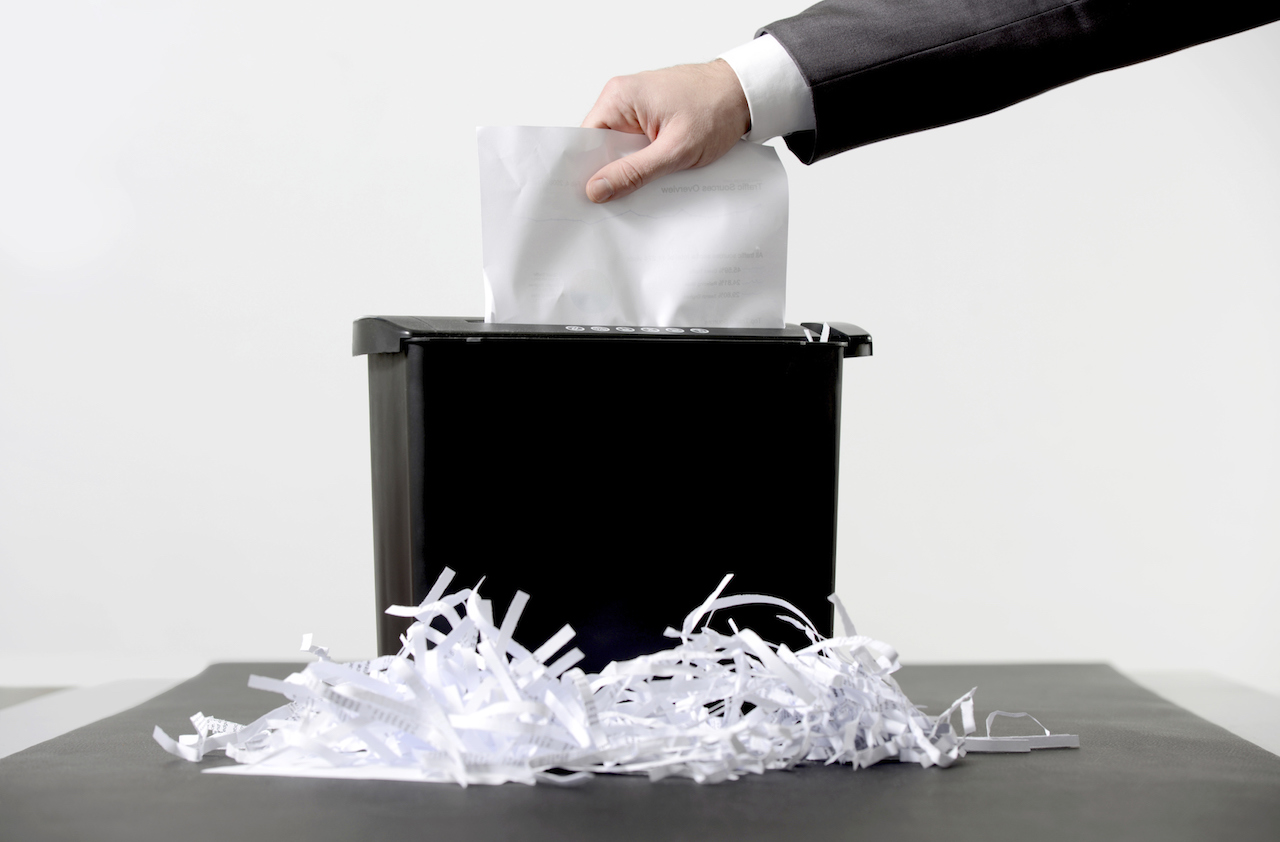Identity Theft After Death
The recently deceased are prime targets for fraudsters, so make sure to destroy any documents they could use to steal someone’s identity.


Profit and prosper with the best of Kiplinger's advice on investing, taxes, retirement, personal finance and much more. Delivered daily. Enter your email in the box and click Sign Me Up.
You are now subscribed
Your newsletter sign-up was successful
Want to add more newsletters?

Delivered daily
Kiplinger Today
Profit and prosper with the best of Kiplinger's advice on investing, taxes, retirement, personal finance and much more delivered daily. Smart money moves start here.

Sent five days a week
Kiplinger A Step Ahead
Get practical help to make better financial decisions in your everyday life, from spending to savings on top deals.

Delivered daily
Kiplinger Closing Bell
Get today's biggest financial and investing headlines delivered to your inbox every day the U.S. stock market is open.

Sent twice a week
Kiplinger Adviser Intel
Financial pros across the country share best practices and fresh tactics to preserve and grow your wealth.

Delivered weekly
Kiplinger Tax Tips
Trim your federal and state tax bills with practical tax-planning and tax-cutting strategies.

Sent twice a week
Kiplinger Retirement Tips
Your twice-a-week guide to planning and enjoying a financially secure and richly rewarding retirement

Sent bimonthly.
Kiplinger Adviser Angle
Insights for advisers, wealth managers and other financial professionals.

Sent twice a week
Kiplinger Investing Weekly
Your twice-a-week roundup of promising stocks, funds, companies and industries you should consider, ones you should avoid, and why.

Sent weekly for six weeks
Kiplinger Invest for Retirement
Your step-by-step six-part series on how to invest for retirement, from devising a successful strategy to exactly which investments to choose.
I’m going through my late mother-in-law’s belongings, and I see that her bank statements from the 1980s and 1990s often included her Social Security number. Do I need to shred them? --D.D., Washington, D.C.
You should shred any documents with information that thieves could use to steal someone’s identity, even after they pass away. “Recently deceased individuals are a prime target for fraudsters,” says Rod Griffin, director of public education for the credit bureau Experian. ID thieves can do the most damage during the period after the person dies but before the credit bureaus, financial institutions and government agencies are notified.
Financial institutions are usually notified about a death from the Social Security Administration’s Death Master File, but that can take a while. It’s better to send copies of the death certificate to creditors, financial institutions, insurers, government agencies and even the credit bureaus as soon as possible, says Adam Levin, chairman of IDT911, which provides ID-theft protection programs for consumers through employers and banks. The fact sheet at www.idtheftcenter.org has a checklist of companies to contact and sample letters to send.
From just $107.88 $24.99 for Kiplinger Personal Finance
Become a smarter, better informed investor. Subscribe from just $107.88 $24.99, plus get up to 4 Special Issues

Sign up for Kiplinger’s Free Newsletters
Profit and prosper with the best of expert advice on investing, taxes, retirement, personal finance and more - straight to your e-mail.
Profit and prosper with the best of expert advice - straight to your e-mail.
Profit and prosper with the best of Kiplinger's advice on investing, taxes, retirement, personal finance and much more. Delivered daily. Enter your email in the box and click Sign Me Up.

As the "Ask Kim" columnist for Kiplinger's Personal Finance, Lankford receives hundreds of personal finance questions from readers every month. She is the author of Rescue Your Financial Life (McGraw-Hill, 2003), The Insurance Maze: How You Can Save Money on Insurance -- and Still Get the Coverage You Need (Kaplan, 2006), Kiplinger's Ask Kim for Money Smart Solutions (Kaplan, 2007) and The Kiplinger/BBB Personal Finance Guide for Military Families. She is frequently featured as a financial expert on television and radio, including NBC's Today Show, CNN, CNBC and National Public Radio.
-
 5 Vince Lombardi Quotes Retirees Should Live By
5 Vince Lombardi Quotes Retirees Should Live ByThe iconic football coach's philosophy can help retirees win at the game of life.
-
 The $200,000 Olympic 'Pension' is a Retirement Game-Changer for Team USA
The $200,000 Olympic 'Pension' is a Retirement Game-Changer for Team USAThe donation by financier Ross Stevens is meant to be a "retirement program" for Team USA Olympic and Paralympic athletes.
-
 10 Cheapest Places to Live in Colorado
10 Cheapest Places to Live in ColoradoProperty Tax Looking for a cozy cabin near the slopes? These Colorado counties combine reasonable house prices with the state's lowest property tax bills.
-
 Work Email Phishing Scams on the Rise: The Kiplinger Letter
Work Email Phishing Scams on the Rise: The Kiplinger LetterThe Kiplinger Letter Phishing scam emails continue to plague companies despite utilizing powerful email security tools.
-
 Got an Invention? Don’t Fall for These Patent Scams
Got an Invention? Don’t Fall for These Patent ScamsScams Getting an idea for a cool new product patented is a dream for many creative thinkers, but unfortunately there are plenty of scammers out there ready to pounce on that dream. Here’s how to spot them and where you should turn for help instead.
-
 Another Epidemic to Worry About: Identity Theft
Another Epidemic to Worry About: Identity TheftScams Fraud losses grew in 2019 and are likely to increase in 2020.
-
 Don’t Expect an End to Robocalls
Don’t Expect an End to RobocallsScams A new pact will reduce but not eliminate incessant phone calls.
-
 What is My Liability for a Data Breach?
What is My Liability for a Data Breach?Scams If you're a business owner, you have got to be on guard against hackers. Don't just hope for the best, instead, assume the worst.
-
 Seasonal Hirings to Hit a Record High
Seasonal Hirings to Hit a Record Highbusiness If you want to earn some extra cash for the holidays, you’ll have a better chance than ever of landing a temporary job as retailers and delivery companies announce a record number of seasonal hires.
-
 Paying IRA Investment Management Fees
Paying IRA Investment Management Feesmanagement New tax law brings big changes. But there are workarounds.
-
 Retailer Data Breaches in 2018: Was Your Favorite Store Hacked?
Retailer Data Breaches in 2018: Was Your Favorite Store Hacked?Scams Find out which retail chains have been hit and where you can go for help to protect yourself from identity theft, scams and financial fraud.